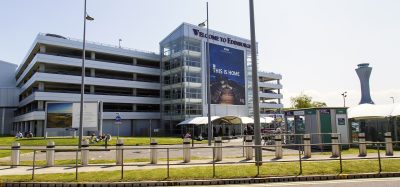Differing national approaches to reopening borders jeopardises recovery
Posted: 9 July 2020 | International Airport Review | No comments yet
ACI Europe and A4E highlight how the smooth reopening of external EU borders is being jeopardised by non-harmonised, uncoordinated national measures.


Despite agreeing at EU Council level to a scientific-based approach and endorsing their own ‘white list’ recommendation just one week ago, EU States are adopting extremely diverging lists. As a result, there is very little clarity on which citizens can travel where. This has effectively led to a patchwork system of travel restrictions and border controls throughout Europe which may remain in place for weeks or months to come.
The situation also weakens the functioning of the Schengen area: Since Member States apply different rules, a Japanese tourist could choose to fly to Warsaw and then travel within the Schengen space without controls.
ACI EUROPE and A4E, representing Europe’s airports and airlines, have urged EU and Schengen States to follow the agreed, fact-based approach towards lifting the ban on non-essential travel to the EU and Schengen area for countries where the epidemiological situation allows.
Free webinar – The future of asset management in global aviation
15 January, 2026, 02:00PM GMT
Join this virtual panel to hear from some of the AtkinsRéalis and aviation sector experts as we discuss how asset management is changing and the impact it will have on the future operations of airports throughout the world.
Examples of diverging implementation of the EU Council recommendations include:
- Belgium keeping its borders closed to travellers from the 15 white-listed countries until further notice
- Germany reopening its borders to eight countries from the white list while requiring reciprocity from China, Japan and South Korea before lifting entry restrictions from those countries
- Greece barring entry to Serbian nationals (not residents), therefore not following the Council Recommendation and going against the EU principle of non-discrimination
- Hungary announcing that it will not open its borders to non-EU countries except Serbia for the moment
- Ireland extending its advice to avoid all non-essential travel until 20 July; a ‘green list’ of countries which people could travel to will not be published until then
- Poland extending its flight ban until 14 July, except for flights from the EU, Canada, Albania, Georgia, Japan, Korea, Montenegro and Ukraine – thereby not using the whole list of approved countries
- Spain reopening its borders on 4 July to 12 countries from the white list – however residents of Algeria, China and Morocco will only be able to travel to Spain if these countries reopen their borders to Spanish residents in a reciprocity move.
“We can’t afford to exit the situation as chaotically as we entered it,” said Olivier Jankovec, Director General at ACI EUROPE. “EU countries are not sticking to their own agreed plan. This is not conducive to consumer confidence and it is clearly undermining efforts to restore air connectivity.”
European aviation remains in a severe and unprecedented crisis. Annual losses are projected to total €82 billion, globally – the worst year in aviation’s financial history.
WATCH NOW ON DEMAND: Enabling checkpoint flexibility with responsible open architecture
Join us for an essential virtual panel supported by Smiths Detection. We will explore how airports can overcome the challenge of mixed vendor systems by adopting a flexible, open approach to checkpoint technology.
This session offers a focused look into achieving efficiency, agility, and future-readiness.
Key learning points
- Understand what to ask during procurement to ensure long-term flexibility and avoid vendor lock-in.
- Learn how centralised image review and flexible algorithm use can help you get more from the technology you already own.
- Strategies to make mixed vendor screening systems work together to improve checkpoint performance and reduce costs.
- See examples of collaborative deployments and the operational agility they enabled.
Register now for expert insights from Los Angeles World Airports, Dutch Ministry of Justice and Security, and Smiths Detection!
Related topics
Airport crisis management, Border control, COVID-19, Economy, Regulation and Legislation

















